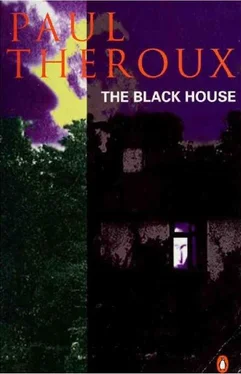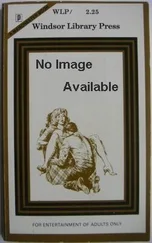Paul Theroux - The Black House
Здесь есть возможность читать онлайн «Paul Theroux - The Black House» весь текст электронной книги совершенно бесплатно (целиком полную версию без сокращений). В некоторых случаях можно слушать аудио, скачать через торрент в формате fb2 и присутствует краткое содержание. Год выпуска: 1996, Издательство: Penguin Books, Жанр: Современная проза, на английском языке. Описание произведения, (предисловие) а так же отзывы посетителей доступны на портале библиотеки ЛибКат.
- Название:The Black House
- Автор:
- Издательство:Penguin Books
- Жанр:
- Год:1996
- ISBN:нет данных
- Рейтинг книги:4 / 5. Голосов: 1
-
Избранное:Добавить в избранное
- Отзывы:
-
Ваша оценка:
- 80
- 1
- 2
- 3
- 4
- 5
The Black House: краткое содержание, описание и аннотация
Предлагаем к чтению аннотацию, описание, краткое содержание или предисловие (зависит от того, что написал сам автор книги «The Black House»). Если вы не нашли необходимую информацию о книге — напишите в комментариях, мы постараемся отыскать её.
The Black House — читать онлайн бесплатно полную книгу (весь текст) целиком
Ниже представлен текст книги, разбитый по страницам. Система сохранения места последней прочитанной страницы, позволяет с удобством читать онлайн бесплатно книгу «The Black House», без необходимости каждый раз заново искать на чём Вы остановились. Поставьте закладку, и сможете в любой момент перейти на страницу, на которой закончили чтение.
Интервал:
Закладка:
“Yes, sir,” said Hosmer, straightening on his shovel and speaking with a guarded respect Munday felt might be impossible to penetrate with any friendliness.
“It’s a perfect site,” said Emma. She brushed at the paw prints with the heel of her hand.
“Mr. Awdry’s,” said Hosmer. “He owns the lot. We rent her, this end of the cottage. One of Duddle’s tenants has the other half.”
“But you get the sun,” said Emma.
“When she’s out,” said Hosmer.
“It’s a beautiful view.”
“That’s Shave’s Cross,” said Hosmer, choosing to indicate a smudge of squares on the landscape, a small cluster of distant gray cottages in the miles and miles of green farmland and trees. It occurred to Munday that a Bwamba might have done the same. Hosmer said, “Over there’s Lyme Regis.” It was a purpling hill, a promonotory at the horizon.
Munday was looking at the cottages. “I see,” he said. “Each of these three buildings is divided in half. That would make five more families living here. Almost a hamlet.”
“Four others,” said Hosmer. “Last one’s standing empty.”
“You’re a lucky man,” said Munday. “There are people in London who’d give anything to have a place like this.”
“Would they?” said Hosmer gruffly. “Well, they can stop where they are.”
“They’re not so bad,” Munday joked. “Once you get used to them.”
“I don’t get used to them,” said Hosmer. “Twenty guineas a week they pay—for a cottage! All that whisky, and the things they do. They want us in the council houses. Bloody nuisance, I say. They can bloody stop where they are.”
“They put the prices up, that it?” said Munday. He smiled; it was an African remark, made of foreign visitors.
Hosmer said, “And my back.”
“Is this all your garden?” asked Emma.
“Yes, ma’m.”
“May we look around?”
“Mind the mud,” said Hosmer. “Been raining. The cows come through here and chums it up.”
“You still have sprouts!” Emma showed Munday the tall plants with the pale green bulbs on their stalks.
“No bloody good to me,” said Hosmer. “Growing into flowers and rotting.” He turned on his shovel and watched the Mundays stroll to the bottom of the garden, Emma looking at the view, Munday lifting a tangle of vines with his walking stick for a better look at the marrows.
“It’s magnificent,” said Emma. She faced the sea where the low sun, wreathed in a gray shallow cloud, still shimmered on the water.
Munday headed for the back of the cottages. He heard Hosmer say, “Sorry I can’t offer you anything,” and Emma reply, “Oh, we were just out for a walk—” In the straw-clumps behind the cottages Munday saw rusting tools, an unused generator black with oil, a gutted motor, and tractor parts, a crankshaft, bolts and wheel-rims and a pile of lumber. He poked at them with his stick. A line of washing, faded overalls, yellow underwear, and blue shirts 'whitened with bleach stains blew noisily, the arms and legs filling with wind, and the line itself lifted. Munday crossed the humpy ground to the fence at the edge of Hosmer’s property to get a better look at the valley, and he was standing trying to memorize the rhythm of the hills, the play of light and shadow, when his thoughts were interrupted by a ribbon of decay leaking past his nose. He sniffed and lost it and then smelled it powerfully, the ribbon growing to a whole rag of stink.
A few feet away, just by a wire fence, was a little platform covered by an old brown piece of canvas. He saw that Hosmer and Emma were out of sight; he stepped over to it and lifted one comer with his stick. He saw white flesh, narrow sinews and the tight bundles of muscle. His first thought was that it was a human corpse, and that fear of discovering a dead man lessened the shock of seeing the hairy rug, the paws, and—lifting the stiff canvas higher—the two dead dogs, lying side by side on the wooden platform. They had been killed, and Munday thought flayed (the word came to him before he actually saw the slashes), and they lay there on the shelf, speckled by decay, beside their own folded pelts.
Munday dropped the canvas and hurried to the side of the cottage, where Hosmer and Emma were still standing and talking.
“I was just telling your missus,” said Hosmer, squinting. “That end cottage—she’s rented.”
Walking home Emma said, “Those were his boys. I asked him. I wish there were something we could do.”
“Bring them to the attention of Oxfam,” he said. “Alfred.”
“There’s nothing,” he said. “He doesn’t even want us around.”
“They look so beaten.”
“Not beaten,” he said. “Detribalized.”
“It’s so ironic,” Emma said, “living in such squalor with that magnificent view.”
Munday said, “Let’s keep to the road this time, shall we?”
And he knew as they talked about the early twilight, the dusk falling on the hills around them, that he would say nothing about the dead dogs. That baffling scene he understood only as an enactment of violence, but something no usual motive could properly explain or make less beastly was another secret he would have to keep from her and beat alone. It was like a hidden infidelity, a habit of faithlessness he was starting to learn, suppressing what frightened him so that Emma would not be alarmed.
They expected an unheated church hall, so Munday wore a zippered cardigan under his thick tweed suit, and Emma her wool dress and jacket; she carried her mac carefully folded on the arm because of the paw prints. But it was very warm in the hall, Munday felt the heat as soon as he stepped inside, and he commented on it to the vicar.
“They like it this way,” said Crawshaw. He smiled at the seated people as he spoke, and led Munday to the stage. “Pensioners, you see—they really feel the cold. It’s why we have these monthly talks. The central heating in here is so expensive. We put some of the proceeds toward the fuel bill. It’s oil-fired. One day we’ll have a new hall.”
Munday said, “If anyone asks me whether it’s hot in Africa I’ll say, ‘No hotter than this room!’ ” There was also a dusty sweetness in the air, like flower scent but cloying, the odor of talcum, cologne, and bay rum, perfumes Of the aged that rubbed against Munday’s eyes.
Every seat was taken. Some people turned and stared as Munday and the vicar walked up the center aisle, but he saw most of them from the back, the suspended lamps lighting their white hair and giving it the thin wispiness of little nest-:like caps of illuminated cobwebs. The bald spots shone. It might have been a gathering for a church service they were so still, almost prayerful; and that look of piety was somehow intensified by the size of their heads, which were very small and set on disproportionately large shoulders.
When Munday reached the front of the hall and mounted the stage he saw the reason for this—they were all dressed for outdoors, each person wore a heavy winter coat. From the front, bundled up in this way, they looked defiant to Munday, annoyed in their cumbersome winter clothes. But there was a general unbuttoning and opening of the coats when they saw Munday and the vicar.
A man on stage was fumbling with a screen, trying to set it up. Crawshaw introduced him to Munday as Chester Lennit.
“Sorry I don’t have a free hand,” said Lennit, flashing Munday a faintly sheepish smile. “Be through in a minute, though,” he said, but as he spoke the tripod collapsed, and the telescoping upright shot down with a great clatter. Heads bobbed in the audience. Lennit pulled it again into position and said, “Bally thing won’t hold.”
The people in the audience watched with bright eyes.
Читать дальшеИнтервал:
Закладка:
Похожие книги на «The Black House»
Представляем Вашему вниманию похожие книги на «The Black House» списком для выбора. Мы отобрали схожую по названию и смыслу литературу в надежде предоставить читателям больше вариантов отыскать новые, интересные, ещё непрочитанные произведения.
Обсуждение, отзывы о книге «The Black House» и просто собственные мнения читателей. Оставьте ваши комментарии, напишите, что Вы думаете о произведении, его смысле или главных героях. Укажите что конкретно понравилось, а что нет, и почему Вы так считаете.












